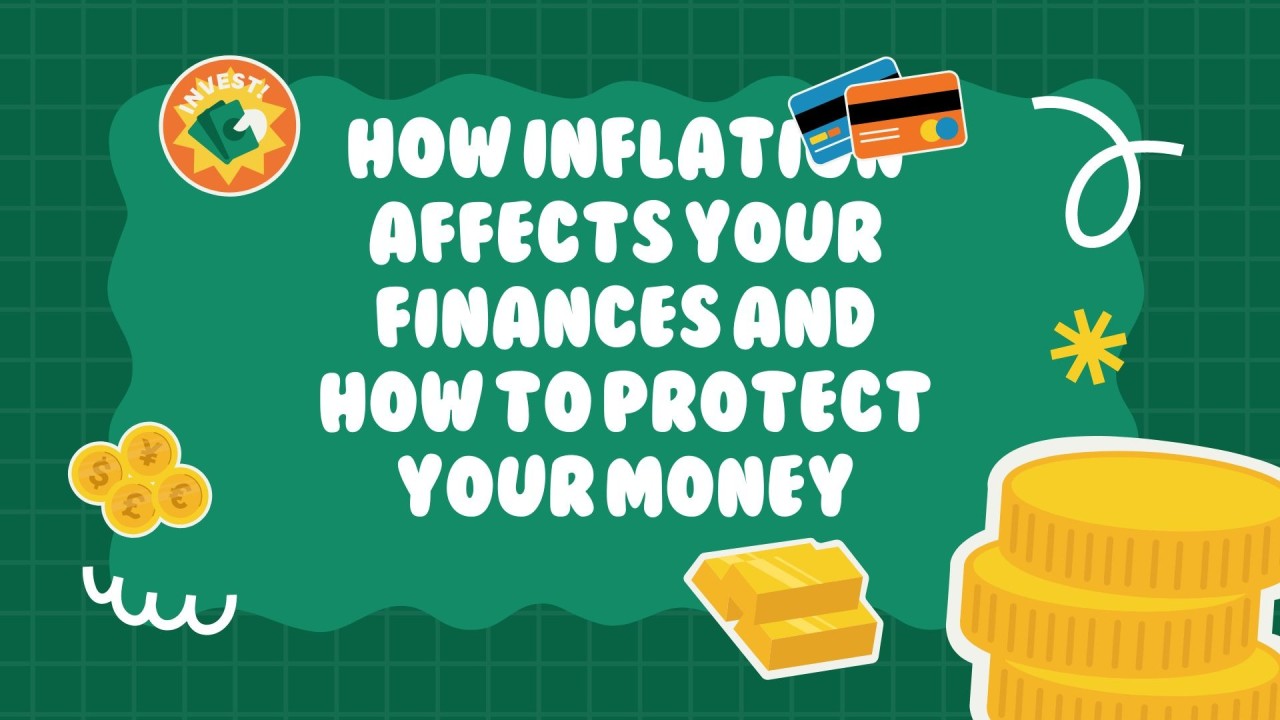
Inflation is the gradual rise in the prices of goods and services over time, reducing the purchasing power of money. While it’s a normal part of the economy, inflation can have profound effects on personal finances if not managed properly. Below, we’ll explore the key ways inflation impacts your financial situation, and provide practical strategies to protect your wealth and maintain financial stability.
The Effects of Inflation on Personal Finances
A. Savings
When inflation rises, the money in your savings account loses value if it doesn’t earn a return that outpaces inflation. For example, if the annual inflation rate is 5% and your savings account offers a 2% interest rate, your money effectively loses 3% of its purchasing power. This means that over time, the same amount of money will buy less.

B. Investments
- Fixed-Income Investments: Assets like bonds and fixed deposits are negatively impacted during inflation because their fixed returns fail to keep up with the rising cost of living.
- Stocks: While inflation can hurt some investments, stocks generally perform better in the long term as companies adjust prices to match rising costs.
- Real Estate: Property values and rental income often rise with inflation, making it a solid hedge against inflation.
C. Daily Living Expenses
Inflation directly affects the cost of essentials like food, housing, utilities, transportation, and healthcare. For example, higher grocery prices or rising rents can strain household budgets, especially if wages don’t keep pace with inflation.

D. Loans and Debts
- Fixed-Rate Loans: Inflation can actually benefit borrowers with fixed-rate loans (like mortgages) because the real value of the loan decreases as money becomes less valuable.
- Variable-Rate Loans: On the other hand, loans with variable interest rates can become more expensive if rates rise to counter inflation.
Practical Strategies to Manage Inflation
To mitigate the impact of inflation on your finances, here are actionable steps to take:
A. Invest in Inflation-Resistant Assets
Certain investments perform better during periods of inflation. Consider:
- Stocks: Choose companies with strong pricing power, such as those in consumer staples or technology sectors.
- Real Estate: Investing in property can help you benefit from rising real estate prices and rental income.
- Commodities: Gold, silver, and other commodities often retain or increase in value during inflationary periods.
- Treasury Inflation-Protected Securities (TIPS): These government bonds adjust their principal value to match inflation, preserving purchasing power.

B. Diversify Your Investment Portfolio
A diversified portfolio spreads risk across different asset classes, reducing the impact of inflation on any one area of your investments. Work with a financial advisor to ensure your portfolio aligns with your financial goals and risk tolerance.
C. Create a Flexible Budget
- Regularly review and update your budget to reflect changes in prices.
- Prioritize essential expenses (housing, groceries, healthcare) and cut back on non-essentials like dining out or subscriptions.
- Allocate funds for savings and investments that outpace inflation.
D. Build an Emergency Fund
Maintain 3-6 months’ worth of living expenses in a high-yield savings account. This fund acts as a safety net during economic uncertainties or unexpected expenses, protecting you from dipping into investments.
E. Increase Your Income
Inflation can erode the value of stagnant wages, so it’s essential to find ways to boost your income, such as:
- Negotiating a salary raise.
- Gaining new certifications or skills to advance your career.
- Exploring side hustles, freelance work, or passive income opportunities.
F. Monitor Debt
- Focus on paying down high-interest debt, as inflation can increase the cost of variable-rate loans.
- Take advantage of low-interest fixed-rate loans, which become cheaper in real terms during inflationary periods.
Long-Term Financial Planning for Inflation
A. Plan for Retirement
When planning for retirement, consider how inflation will impact your future expenses. Opt for retirement accounts and investments that provide inflation-protected growth, like index funds or TIPS.
B. Insurance Protection
Inflation also affects insurance coverage. Review your health, life, and property insurance policies regularly to ensure the coverage keeps up with rising costs.

C. Regularly Reevaluate Your Financial Strategy
The economy and inflation rates fluctuate, so it’s essential to review your financial plan periodically. Stay informed about inflation trends and adjust your investments, budget, and savings accordingly.
Why Managing Inflation Matters
Ignoring inflation can lead to reduced purchasing power, underperforming savings, and difficulty maintaining your lifestyle. By taking proactive steps, you can:
- Protect your savings and investments from inflation’s impact.
- Ensure your financial health remains stable even during periods of rising costs.
- Secure long-term financial goals, such as buying a home, paying for education, or retiring comfortably.
Inflation is a reality of modern economies, but it doesn’t have to derail your financial plans. By understanding its effects and implementing strategic measures—such as investing wisely, increasing your income, and adjusting your budget—you can safeguard your financial future. Managing inflation is not just about surviving rising costs but thriving in a constantly evolving economic landscape.





